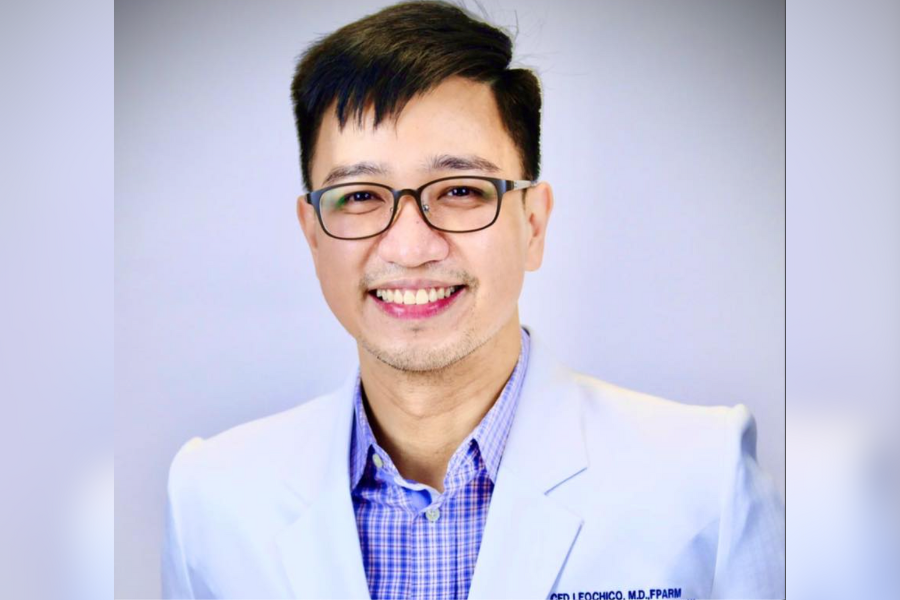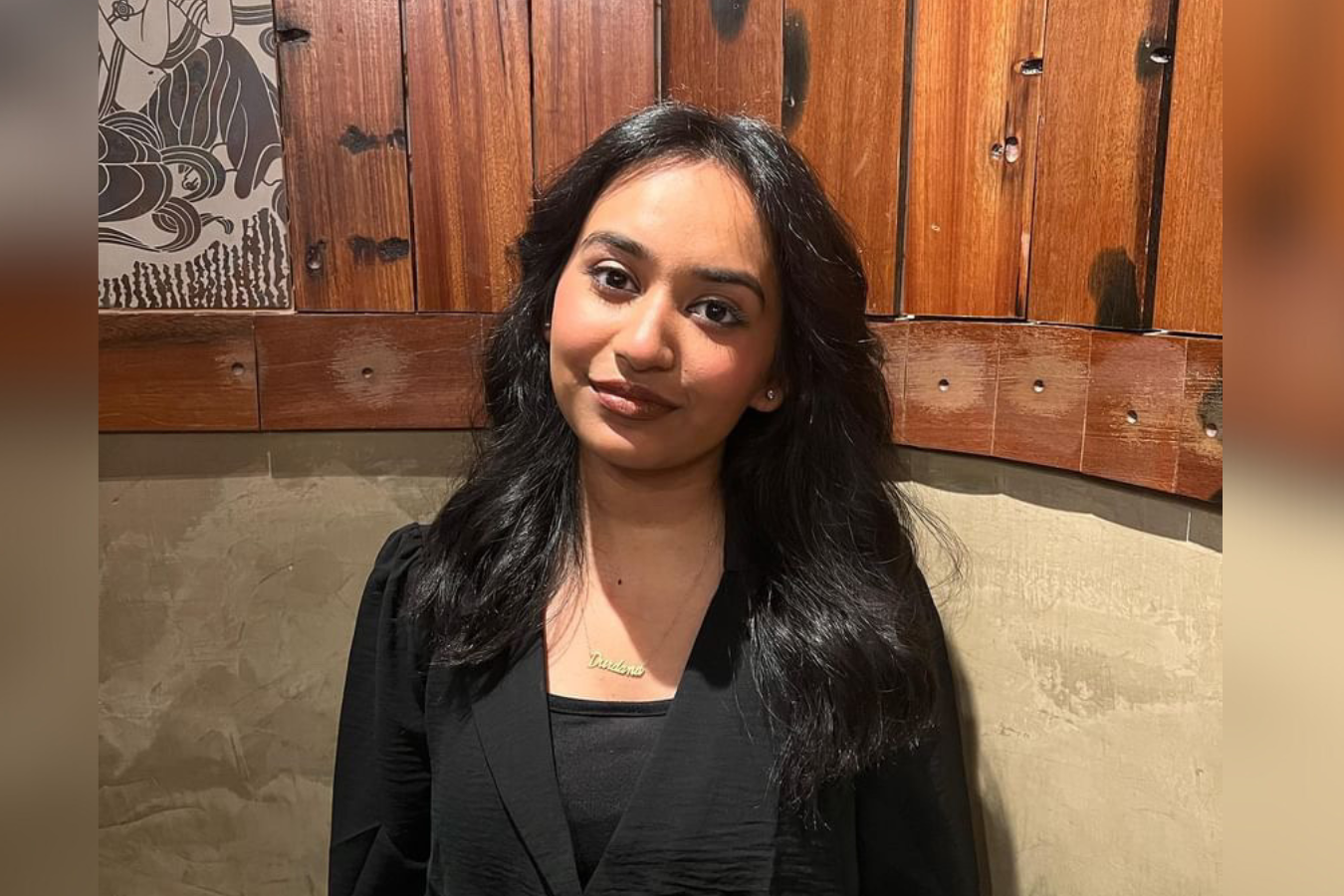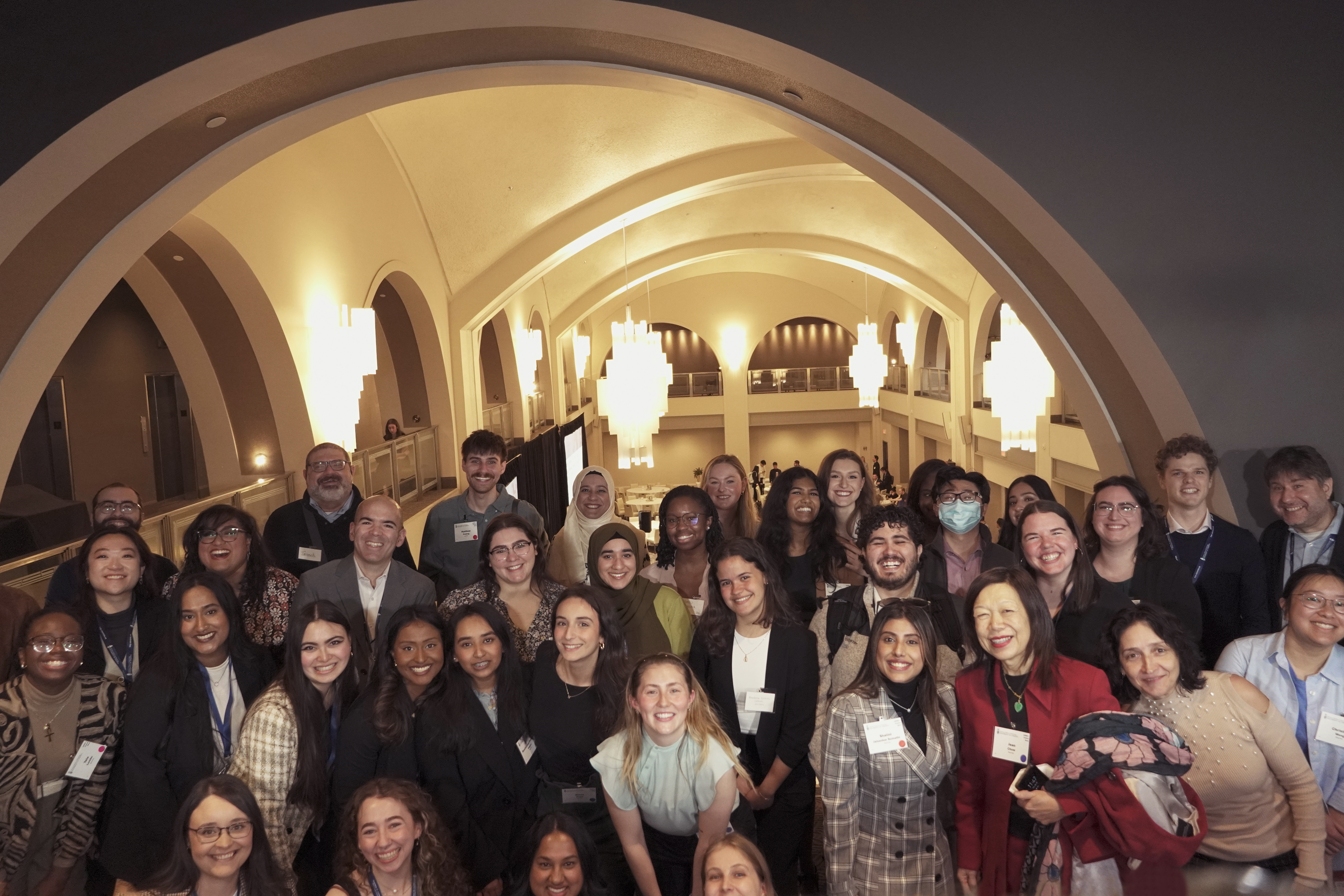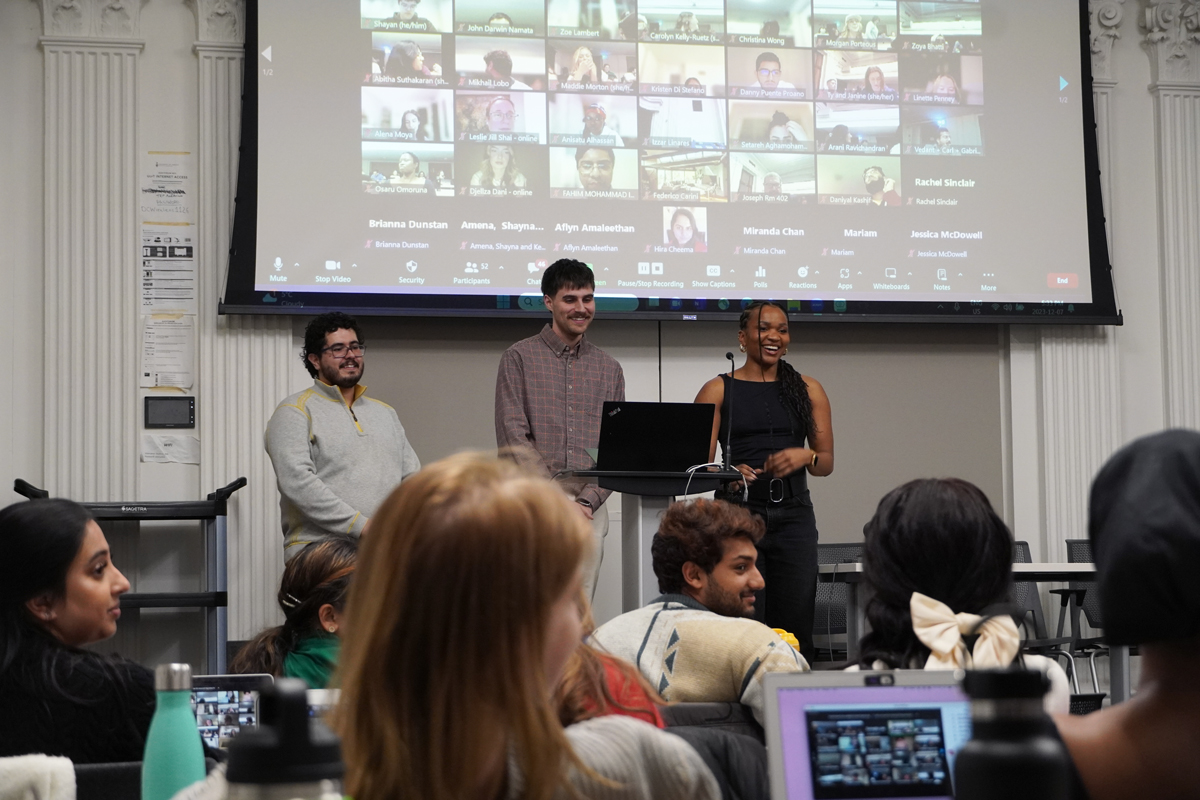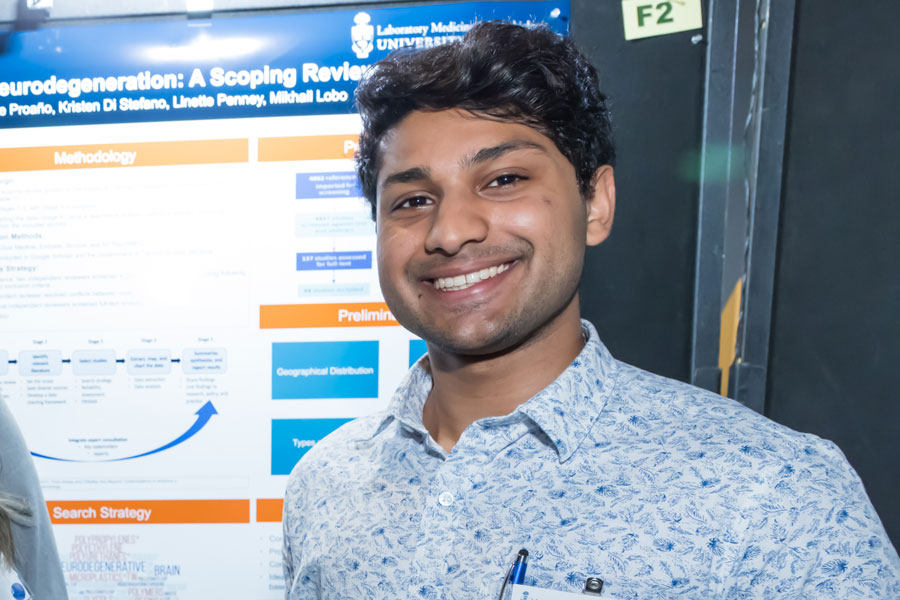
Recognizing Women's Achievements in Science at the TRP
We reached out to remarkable women from the Translational Research Program to learn about their passion for STEM and gather advice for aspiring women in science.
The United Nations General Assembly designated February 11th as International Day for Women and Girls in Science to strive towards gender equality for women and girls pursuing STEM-related fields.
We reached out to some of the amazing women in the Translational Research Program to find out why they love STEM and what advice they have for women looking to pursue a career in science.
Aflyn Amaleethan
Dream big! No matter where you are in life, don't ever let anyone tell you what you can or cannot do. There will always be someone praying on your downfall, but an army of people wishing for your success. Take every opportunity you can to talk to people in the field and explore your interests. And if no one else has said it to you yet, I believe in you and I can’t wait to see the difference you’ll make in the world!
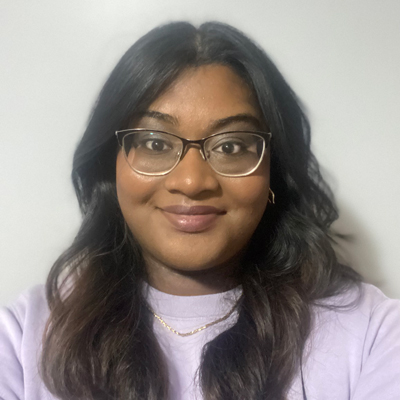
After working in a clinical lab setting in my undergrad, I wished I could do more for the community. There was always this gap between what we were doing in the lab and how we actively supported our participants. Through the Translational Research Program, we aim to take a human-centric approach, seeking healthcare innovations that are meaningful and directly benefit human health.
I have found that one of the most impactful aspects of my research is collaboration with specialists in the field, my peers, and especially with the different community members. I am currently collaborating with some of my peers and Covid-19 Resources Canada to understand gaps in data dissemination of Covid-19 statistics, specifically through journalism to the directly affected community members. Where we could have done literature searches as the base of our research, we were given the opportunity to reach out directly to the community to understand their specific needs. The process of identifying the specific unmet need and applying an innovative thinking approach to directly support that community is such a rewarding part of my research which gives me all the more reason to enjoy what I do.
I’ve always had an inquisitive personality. There is never a moment where I am not using the Google search bar typing away to find the answers to my next question. I think that’s what drew me to research in the first place, the idea that I could be part of the discovery process. But that’s also the beauty of sciences and research, there sometimes is no answer, and it’s our job as researchers to look for those solutions.
The first time I was inspired to study the sciences was in the 7th grade when I had my first look into a microscope. I can still feel the exhilaration and excitement of looking into the lens and seeing the bacteria on the slide. Fast-forward to undergrad, I chose to specialize in human health and disease where I had an opportunity to see the multidisciplinary approaches to understanding human health from bench to bedside. It was during my undergrad thesis project at the mood disorders and psychopharmacology lab that I knew I was definitely on the right path to making a difference in the healthcare community and supporting people through my research efforts.
Sumaya Bhatti
If you are unsure about what you want to do in the future, that's ok. Science is a large field so explore different avenues and be prepared that some will work out and some won't. Eventually, you will find where you fit in and what makes you excited. It is important to do some self-reflection and be honest about what your passions and interests are so that when the right doors open for you, you are willing to walk through them.
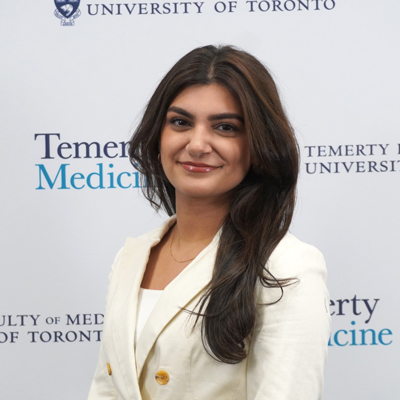
I was under a lot of stereotypical pressure to become either a doctor, lawyer, or engineer. I chose the doctor path and as I completed my B.Sc. in Life Sciences, I realized it was a lot of textbooks, labs, and memorization which is important, but it wasn’t fulfilling for me. It took lots of reflecting, conversations, and Google searches to figure out what I wanted to do. I stumbled upon the Translational Research Program here at UofT and that’s when the path became clear to me.
What I love about TRP is that it allows me to take my love for science and research and translate it into something meaningful. Currently, my team and I are working on a capstone project to improve health and wellness for community housing tenants in Toronto. I am enjoying the process of engaging with the community and applying the findings to real-life solutions. For me, being able to see the impact this will have on the community is the fulfilling path that I was seeking.
My inspiration is my grandmother, Naseeb, who was from a small village in India before she decided to immigrate to Canada with her family. She was a young widow raising six kids on her own and never had the luxury of attending school. Despite not going to school herself, growing up the number one thing she engrained in me was that education is important but even more important was using knowledge to do something good. She inspired me to pursue my passion for science and to explore beyond academia. My experiences volunteering in non-profit organizations, long-term care, and senior care made me curious about patient-facing careers beyond medicine, leading me to TRP. I value the bench-side research I did during my undergrad, but being able to use the knowledge to develop, innovate, and implement something for direct impact has been very rewarding.
Morgan Porteous
Explore! Follow your natural curiosity because there is no limit to the topics and disciplines about which you can learn. If you’re not sure what that is yet or how to get there, that’s okay! Sometimes you don’t have to look too hard, the best opportunities find you. Don’t be afraid to vocalize your interests, ambitions, or curiosities because you never know what opportunities might come from simple conversations!
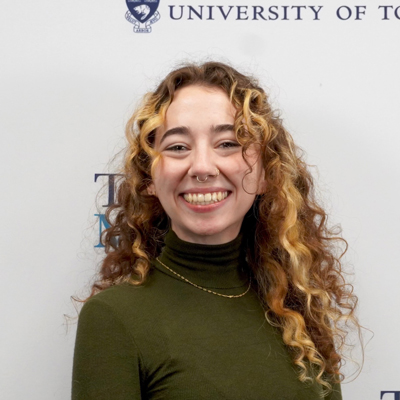
My undergraduate degree was in Integrated Science which fostered an interest in, and passion for, science communication and interdisciplinary collaboration. My journey in this space continues in TRP where I’m currently working on my capstone research project which aims to develop a context-specific model of primary care within a health desert in a Hamilton neighbourhood. I’m also currently working as a Data Analyst for the College of Registered Psychotherapists of Ontario (CRPO). Both these roles grant me the opportunity to work with individuals across disciplines and to exercise new strategies for communication and knowledge dissemination.
I’ve always been drawn to topics that (try to) make sense of the fundamentals of the universe- be it math, physics, or biology. I did well in these subject areas, and I enjoyed them, so it made sense to pursue them for higher education. Then during my undergraduate degree, I was inspired by the intertwined nature of fields that are siloed during school- we need biology and physics to understand chemistry, we need math for all of it, and we need everything for medicine!
It was during my thesis work that I realized, that while I love discovery science, I naturally gravitated towards and felt more comfortable in the realm of translational science. This field has a strong emphasis on communication and implementation, which I came to realize was important to me. Science and medicine, of any kind, affect us all but are inaccessible if you lack formal education in the field. What’s the point of scientific research if we don’t use it to help people? I believe that the knowledge within the STEM disciplines can make people happier and healthier. I’m passionate about translating all that information into concepts that people can easily digest and apply to their lives.
Shalini Jaisankar Sumathi
Serving humanity is one of the noblest pursuits. Always remain a curious and proactive learner. Pay attention to your physical health, particularly muscle and bone health, as it is the cornerstone of a fulfilling life. Strive to learn, reach a point where you can create and innovate, and relish the joy in solving global challenges. If you're working in the field of health, that's even more special!
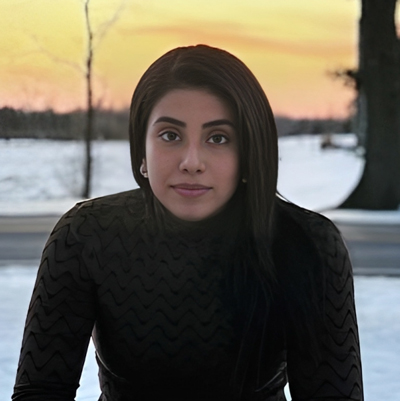
From a licensed occupational therapist working with diverse populations in India, my career trajectory took a meaningful turn upon moving to Canada. My program in LMP has been instrumental in facilitating my transition from direct patient care to channeling my passion for healthcare into research, with a specific focus on improving the lives of the aging population and advancing technological applications in healthcare. I’m part of an innovative study using a novel method to assess muscle mass loss and its health impact in older adults. This work is central to my efforts in understanding and addressing the health challenges faced by seniors, with the goal of improving their well-being and quality of life.
I am also engaged in a project that leverages innovative technological approaches to assess early mobility limitations in older Canadians. This study is crucial in promoting independence and improving the quality of life for seniors, reflecting my dedication to geriatric health.
My path to STEM was a natural progression, driven by a heartfelt interest in health sciences and a desire to make a tangible difference in people’s lives. At the heart of my work is the desire to bridge the gap between scientific research and tangible patient outcomes. A key project that highlights my interest in integrating technology into healthcare is the development of an AI-powered chatbot for the Ottawa Hospital, aimed at enhancing healthcare delivery and efficiency. This project, distinct from my geriatric health focus, showcases my commitment to leveraging technology for healthcare innovation. Alongside, my work in geriatric health research underlines my dedication to improving the lives of the aging population. In STEM, I see a dynamic field where my skills and curiosity converge to address pressing health challenges and contribute to the advancement of accessible, efficient care.

Kate McDonald
Like this story?
Explore
Join our mailing list
Follow us on social media
Don’t miss our latest program updates, events, stories, and more.
- Room 120
- Old Administration Building
- University of Toronto
- 263 McCaul, Toronto, ON
- Canada, M5T 1W7
